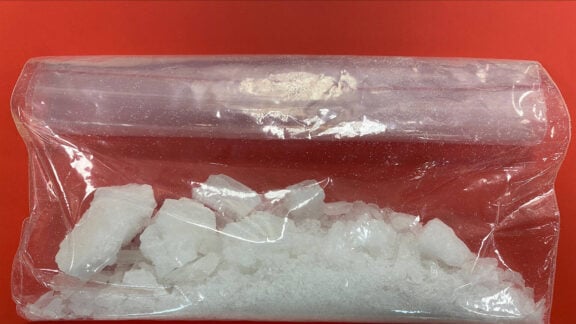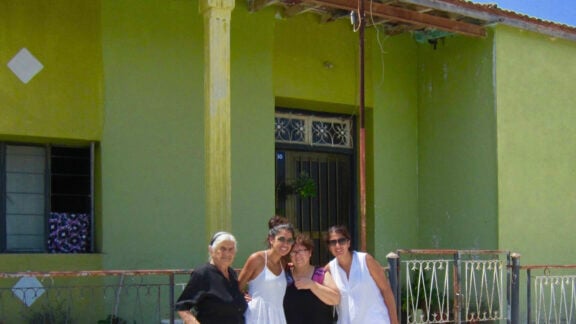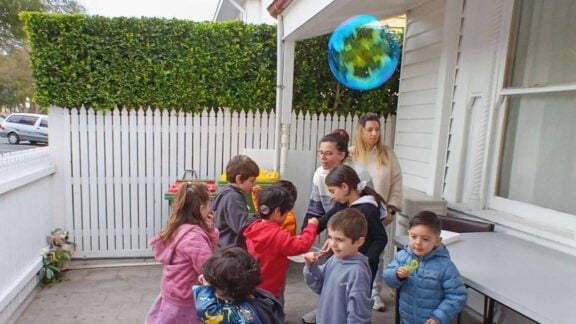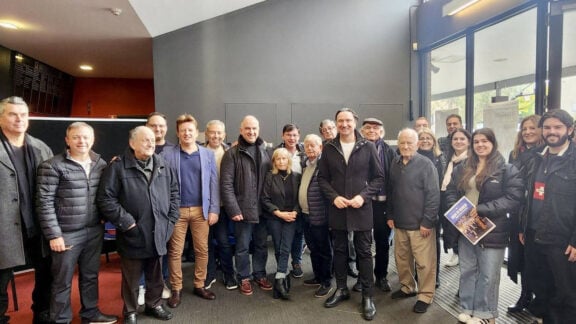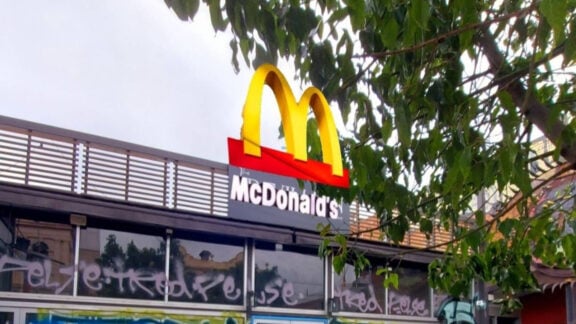This year will long go down in history as the Covid-19 or Coronavirus year. There are few guesses what will be Newsmaker of the Year. Beginning in China, the response to the virus will probably affect every person on this planet. Nothing in history has brought the world to act in the same way so quickly as this.
And none of us know how long this is going to pan out. All we can do is as Benjamin Disraeli, Jack Reacher and most recently, Jenny Mikakos have said: “Prepare for the worst and hope for the best.”
So in the past few weeks we have been stocking up, and preparing for an extended of period of self-isolation. We have been careful to keep our distance from each other and keep our hands clean and been mindful of what we touch. Simple, life-altering actions. And these have consequences for all. Not least our livelihoods.
Neos Kosmos has spoken to a number of people whose businesses are affected by all the constraints that are in place to counter the spread of Covid-19.
For Maria Christou of the House of Pan in Brighton, things were going well until be beginning of March and then things started going very quiet.
At the time of writing she said that for now she would concentrate on meeting food orders through Uber Eats and her take-aways. The shift to food delivery and take-aways would allow the business to keep operating every night.
“If I can do Uber Eats and open more days then, hopefully, I can give my staff more hours and even though I might not have so much staff on, we can alternate everyone, so everyone can get a bit of work. I don’t want to let anyone go. If Uber Eats works, I am going to open for more days and they will gain more hours – even the musicians – I will have to alternate so everyone still has some work,” she said.
She said she did not yet know if she qualified to receive the promised government assistance for small businesses announced earlier this month. She said that she had enough stock for the time being but she did not know what the future holds.
READ MORE: Pharmacies ride the Covid-19 storm with shore far from sight
“What I’ve noticed with my suppliers is that even though they have the food, they cannot keep up with the demand now. People are saying that we will go into lockdown as we tend to follow what England does.
“I wish we would go into lockdown. Let’s all go into lockdown, let’s sort this out and when everything is solved we can start again. Right now it’s worse. We do not know what is happening; it’s all over the place,” said Ms Christou.
Another member of the hospitality industry, Stalactites and Hella Good owner Nicole Papasavas told Neos Kosmos that her restaurants which are in central Melbourne had also noted a significant drop in customers over the past two weeks – dropping even lower this week.
“There are not many people walking about in the city, not many people coming in to Hella Good – the take-away, quick-service restaurant – it’s been hit there too – fewer people in the city. A lot of our customers were working in offices and they would get their food delivered to their offices the offices.
“We are doing our best. We are offering pick-up in the store, deliveries, we are doing take-home meals, and we’ve got our chef, Dimitra, to prepare meals that customers can take home to freeze and warm up later.”
It is survival mode for the well-established Stalactites restaurants, said Ms Papasavas and looking after her 70 staff members was a priority.
“Many are with young children and students and this is their only source of income. We haven’t laid off any staff but we have cut back our roster.
“At the moment we are in survival mode, but aside from that, we are doing everything we can. We are taking extra preventative actions and keeping our customers safe.
“There’s been announcement about asset write off from the government– but what we need now is cash flow to survive this.
“What businesses need is help to stay afloat- it’s everyone, every business, architects, retail, repair, things are on hold right now. We re ordering stock day-by-day just in case they shut us down. We just want everyone to be healthy, everyone to be safe and everyone to have a job when we resume again.
Across the board, other industries are also being struck by the crisis. Active Audiology that serves much of the Greek community in Melbourne is also suffering. Vy Tran told Neos Kosmos that many of the clients coming to the six audio clinics under Active Audiology had stopped doing so in recent weeks. She said most of the clients were over 60 and were therefore the most vulnerable to the virus.
“Most of our clients are over 60 and are in the most vulnerable group for Covid-19 so they are staying away,” said Ms Tran.
Just over a month ago, the clinics were serving up to 2,000 patients and getting new patients coming in every week.
“Three weeks ago things slowed down but now they have really dropped. We resorting to phone and video links to talk to our patients.”
Not an easy thing when the patient is using Active Audiology to see to their hearing needs in the first place and when the customer is an elderly Greek whose first language is not English.
“We ask our patient’s children to try and sort the equipment over the phone or to bring it in.
“But our service is face to face and our Greek customers like to come and see us at the clinics – the social aspect is very much part of the whole process,” said Ms Tran.
“If the patients are not well then a home visit is a problem as we do not want to compromise the health or our staff or of the patients.”
And concern for her staff is another problem Mrs Tran is dealing with.
“We have made plans to keep jobs going as we will need the staff when things normalise. So we will keep going for as long as we can.”
READ MORE: Hairdressers and barbers taking coronavirus regulations into their own hands
As allied health entity the organisation is deemed to be an essential health service but the uncertainty of that status remains. Ms Tran said the problem to the organisation would be great if a staff member became sick.
“Anyone with symptoms among our staff must go to a doctor to be tested. If found to be positive, then the government rules must be followed. But testing is difficult at this state. If the staff get sick then we cannot run.
“We can run a low level service for six months but after that we hope the banks and landlords can play along to these changed circumstances.
“The uncertainty is what is unsettling. We don’t how long we can to prepare for this, is it weeks or months?”
James Blinko, the site manager of Penfold Mazda in Hawthorn which services and repairs cars, said earlier this week that there had been some reduction in business because more people were staying at home this week.
“It is acceptable at present but it is declining,” he said. “It is difficult to put plans in place and don’t know for how long it will last. We are just taking it a week at a time.
“What we have not been told as yet is what we are – We believe we are an essential service,” he said. “Few will want to take public transport so they will have to rely on their car and that has to work.”

